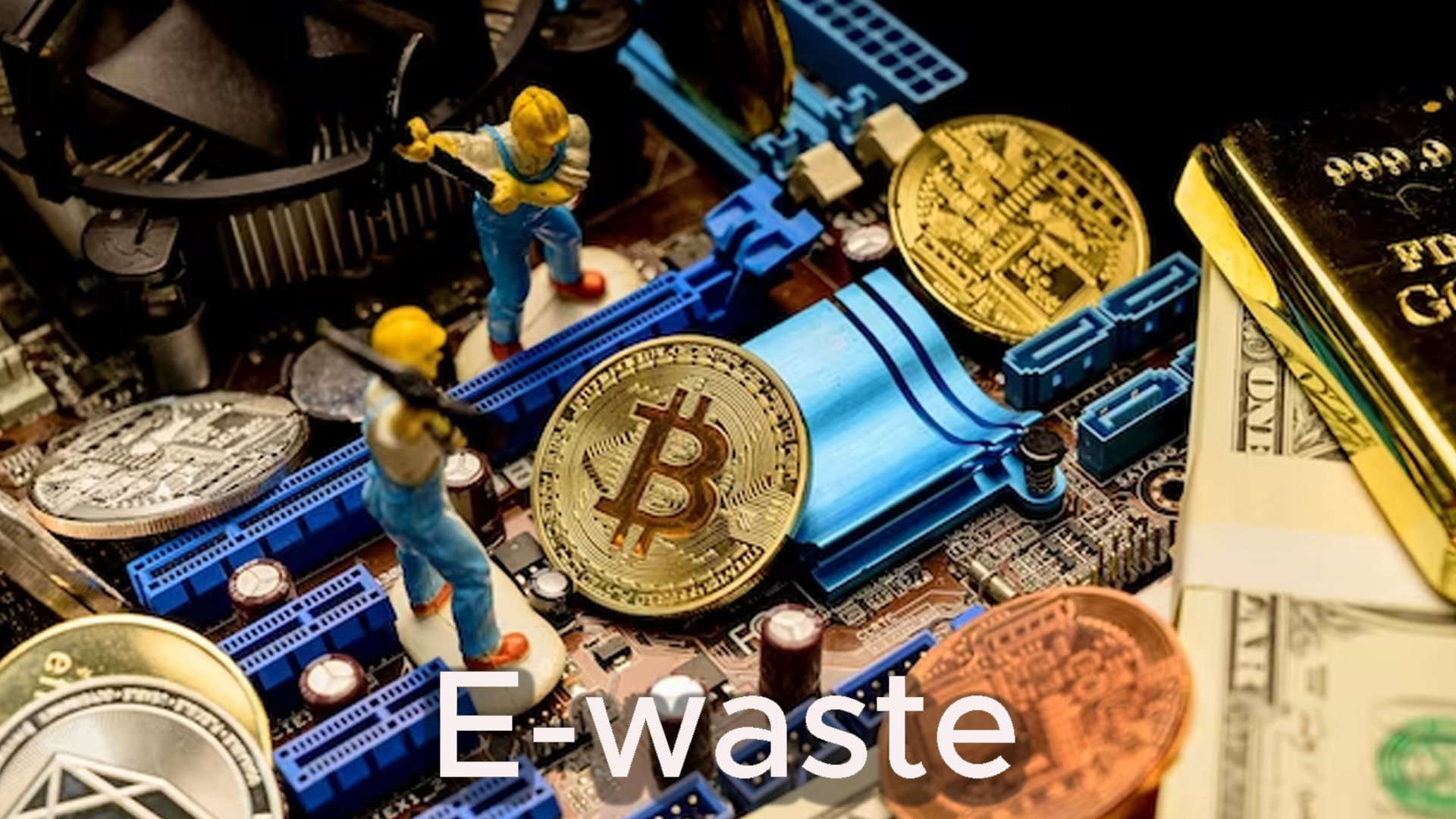- Bitcoin mining produces 30.7 kilotonnes of waste annually
- It becomes important to properly dispose of and regulate e-waste produced from Bitcoin mining to preserve our ecosystem.
As crypto enthusiasts, we know how much energy and carbon emissions are produced in Bitcoin mining, which is a major problem. Earlier, CPUs (Central Processing Units) were used to mine coins through PoW consensus, but then miners quickly realized how much GPUs ( Graphic Processing Units) were better suited to wrap up this task in a more timely manner.
Bitcoin mining is a high energy consumption process, and the hardware that is used, known as ASICs (application-specific integrated circuits), becomes unusable after approximately 1.5 years and is thrown away. This e-waste is a serious problem as it not only pollutes the environment but can also cause serious health issues due to the content of hazardous materials such as lead, mercury, and cadmium.
In this article we will talk about ways to manage e-waste from Bitcoin mining.
Repair and Reuse
Miners just throw those circuits away, and ultimately we get the landfill of those circuits. There’s a major need to address this issue because as soon as new circuits are available, the old ones are thrown away. Instead of throwing them away, you can lend them to someone else or repair the circuits with broken capacitors.
ASICs usually don’t have a long life because of the way they are used, but one must also be aware that major manufacturing units are also offering circuit maintenance and repair programs to educate miners. This behavior change is necessary to eliminate the major issue of such e-waste and tackle this problem.
Proof of Stake
Bitcoin mining produces 30.7 kilotonnes of e-waste annually so to rescue such energy consumption Bitcoin mining, which uses traditional Proof of Work consensus, can switch to Proof of Stake consensus, which will end up consuming very little energy. Proof of Work consumes 5.13 gigawatts, and on the other hand, Proof of Work consumes 2.62 megawatts.
So adopting this method would reduce a lot of energy wastage, make it an eco-friendly method, and give it wider acceptance.
Government Regulations in Bitcoin Mining
As of now, there is no regulation requiring Bitcoin miners to dispose of and recycle the waste from mining. The government can play an important role by putting regulations and penalties in place to properly dispose of e-waste. Bitcoin mining can cause serious issues for the environment and ecosystem if no steps are taken.
Wrapping Up
There is a need for a change in behavior in how we manage our e-waste. Many regulatory acts have been set up by the United Nations and the European Union to reduce landfills of e-waste and preserve our ecosystem. Bitcoin mining has a lot of negative impacts on our planet, not only in terms of waste and energy consumption but also what we are passing on to the next generation.
As our future and technology keep evolving, we as humans have to make sure our actions lead to a positive tomorrow.


